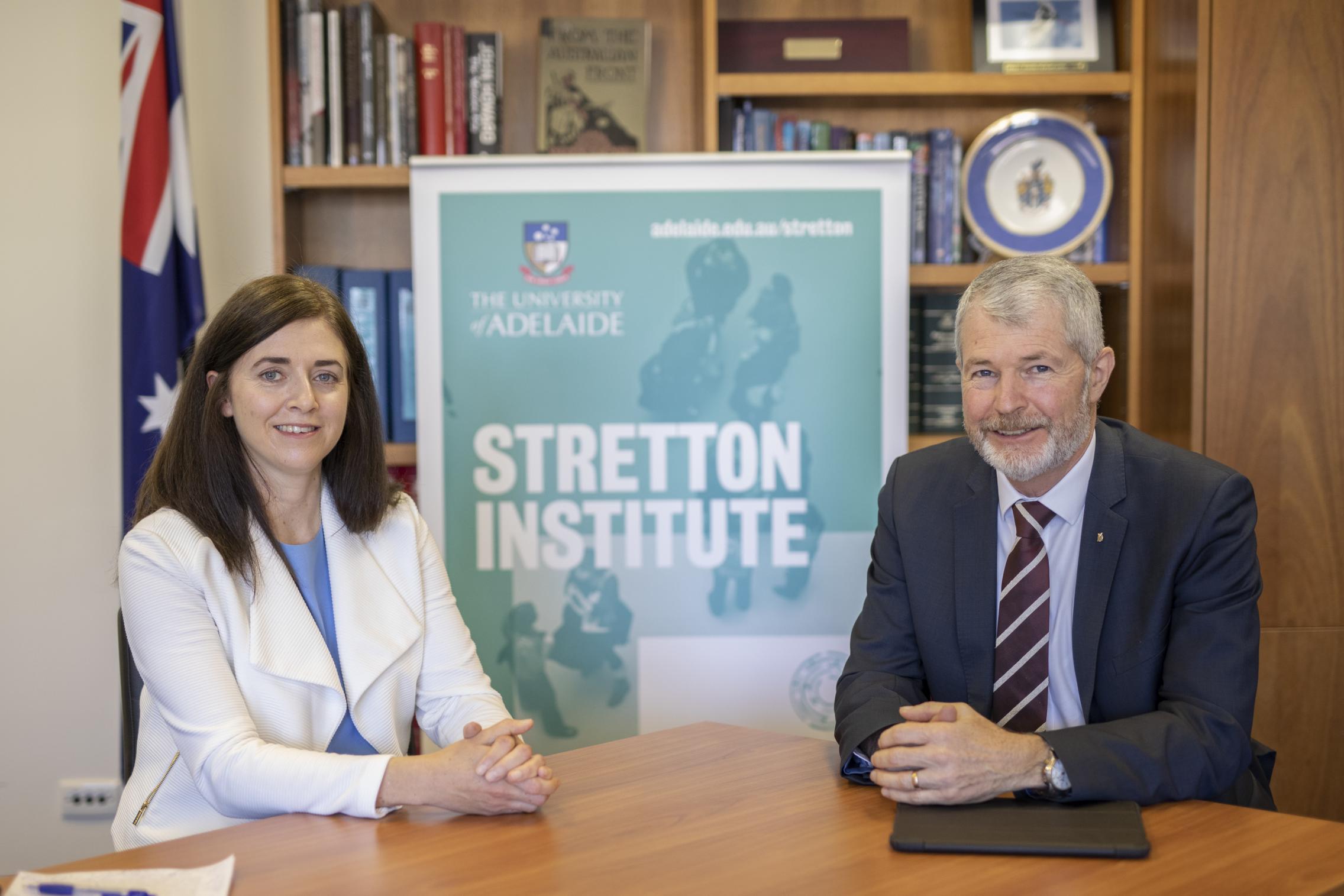For Australia's foreign affairs, defence and trade, the lessons of the COVID-19 pandemic are not primarily about health
In December 2020 the Joint Standing Committee on Foreign Affairs, Defence and Trade released the findings of its inquiry into the implications of the COVID-19 pandemic for Australia’s foreign affairs, defence and trade

Professor Joanne Wallis with The Hon David Fawcett, Senator for South Australia
On 29 March 2021, Professor Joanne Wallis from the Department of Politics and International Relations spoke to Senator the Hon David Fawcett, Chair of the Committee, about the report and its implications for Australian policy. Watch the conversation below.
The report examines key questions that the Australian government – like many others – is asking about its foreign relations, particularly the robustness of the rules-based international order and the appropriate balance between economic globalisation and security. These questions had become acute during the early period of the COVID-19 pandemic when Australia faced shortages of the personal protective equipment critical to protecting its health and other frontline workers. Their continued relevance is highlighted by the difficulties Australia faces importing COVID-19 vaccines.
Reflecting this, the report has a strong focus on the vulnerability of Australia’s supply chains – particularly for pharmaceuticals, food, and fuel. It recommends that the government provide “targeted support for Australian industry sectors” involved in providing these, and other, critical national systems. The report tasks the government with identifying which systems are critical and then developing and sustaining local capability to ensure their security in the future, especially given the likelihood of another pandemic or other sustained disruption, such as grey-zone, coercive, or military actions.
While the report emphasises the continued importance of multilateralism, it continues the government’s view that Australia’s engagement with multilateral institutions should be guided by its national interest. This reflects growing concern about the influence of authoritarian states in those institutions and the risk of the bifurcation of the international economic and security architecture.
Building on those concerns, the report calls for a revaluation of Australia’s diplomatic partnerships, with an increased emphasis on cultivating relationships – particularly for trade – with “like-minded nations” to help shore up supply chains and revitalise the rules-based international order on which they rely.
The report requires a substantial commitment from the government to achieve its envisaged reorientation of Australia’s trade relationships and domestic capabilities. This recording represents part of the effort to publicise the report’s findings and begin the national conversation necessary to sustain that commitment.
